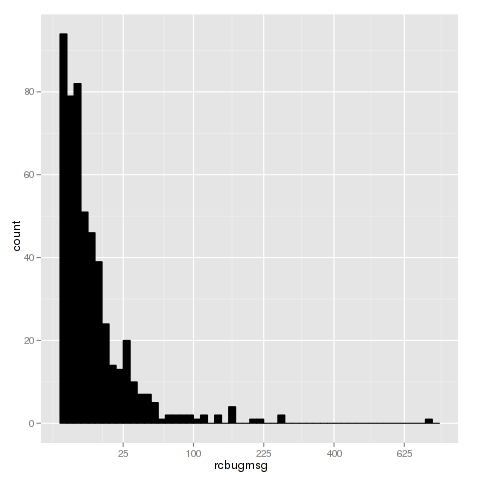A week ago, we started the Debian systemd survey. The goal was to figure out a few trends and answer the following two questions:
-
Do our subjective impressions from the discussions on debian-devel reflect the
general sentiment about systemd?
-
What are the main concerns that most people have?
Thank you all for your participation!
General
I am happy to tell that 2113 people had a look at the survey and 573 people
actually participated. Of those, 45.7% said they are a DD, DM or otherwise
maintaining packages. 74.5% said they actually booted and used a computer
running systemd.
With regards to having systemd in Debian at all, not necessarily as the default
init system, answers are as follows:
- 62.4% voted I welcome systemd in Debian, everything is fine
- 14.1% are not sure yet.
- 8.0% don t care.
- 15.3% don t want systemd in Debian.
43.9% said they personally want systemd as the default init system in Debian,
while 32.2% don t want that. The remaining 23.7% don t know yet.
Top concerns
About 50% of participants provided one or more concerns. Evaluating this part of
the survey is obviously the hardest, since the answers were provided as free
text. I tried categorizing the feedback into a few buckets. Each bucket comes
with a number which is a weighted (!) count, i.e. the top concern counts 3
times, the second concern counts 2 times and the last concern just once. If you
cannot find your personal concerns, that is because those which were just
voiced by less then five people are not listed here. As I said, we cared about
trends in this survey, not individual opinions.
-
systemd is too complex, or bloated, or it does too many things, or has too many dependencies (weight: 217)
-
systemd is not portable to non-linux systems, e.g. Debian/kFreeBSD or HURD (weight: 199)
-
Debugging the boot process is harder than in sysvinit (weight: 106)
-
I have a problem with systemd upstream and/or Lennart in particular (weight: 87)
-
systemd violates the UNIX philosophy (weight: 35)
-
I dislike binary logs and/or the journal in general (weight: 30)
-
systemd is too new, still untested, unstable and experimental (weight: 24)
-
I cannot find enough documentation in general or about the transition from sysvinit to systemd in particular (weight: 20)
-
People need to learn new commands/how the new system works (weight: 20)
-
I don t know what problems systemd solves and/or have no problems with sysvinit currently (weight: 19)
-
I think the configuration is binary and/or the configuration format is weird (weight: 13)
-
systemd s code is not good (memory leaks, performance problems) and/or upstream s development lacks best practices such as long-term stable branches (weight: 9)
-
There are problems with systemd in Debian (e.g. Debian-specific extensions to /etc/fstab not supported, system doesn t boot) (weight: 9)
-
Customizing the boot is harder than with sysvinit (weight: 8)
-
systemd is not compatible with sysvinit (weight: 8)
I realize that the choice of buckets is somewhat broad and there are many different, finely nuanced opinions out there. Again, this is for seeing a trend, not accounting for every single individual opinion.
In case you strongly believe that I did something wrong when evaluating the survey results, please contact me and we can work something out.
Conclusions/Actions
I know this is a controversial topic. Please don t start yet another systemd
discussion on debian-devel. We, the systemd Debian maintainers, will try to
come up with good answers to all listed concerns and communicate them in a
friendly and concise way soon. Furthermore, we have recognized the need for
more documentation/information about how things are supposed to work with
regards to the transition (and systemd in general) and will address that, too.
Raw questions/numbers
Total records in survey: 573
Are you a Debian Developer (DD) or Debian Maintainer (DM) or otherwise currently maintaining Debian packages?
262 Yes
311 No
Did you ever boot and use a computer running systemd? It does not matter whether that computer was running Debian or a different operating system.
427 Yes
146 No
What is your general sentiment towards having systemd in Debian (not necessarily as default)?
358 I welcome systemd in Debian, everything is fine.
81 I am not sure yet.
46 I don t care.
88 I don t want systemd in Debian.
Would you personally want systemd as the default init system in Debian?
252 Yes
136 I don t know
185 No
 As the first and third quantile are close together we can assume that the majority of the work is done by a few, especially since the second quantile is 5. This is supported by the histogram below, where the x axis is the number of recorded messages and y is the number of developers.
As the first and third quantile are close together we can assume that the majority of the work is done by a few, especially since the second quantile is 5. This is supported by the histogram below, where the x axis is the number of recorded messages and y is the number of developers.

 Reading about
Reading about  It seems we have a lot to fix
It seems we have a lot to fix